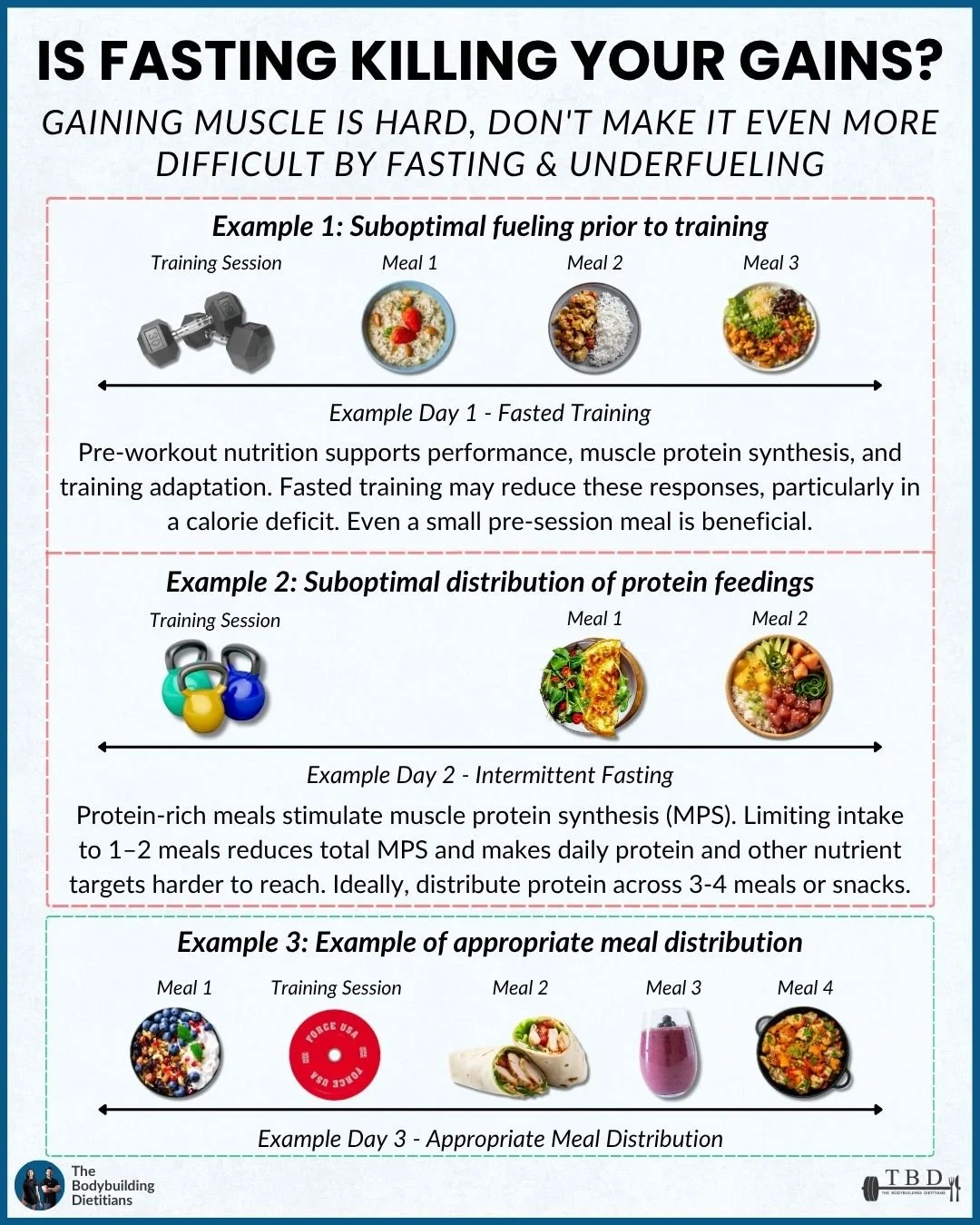Fasting and Hypertrophy: Why Fuel Matters
You can’t out-train poor fuelling.
Building muscle is hard work, and when your body isn’t properly fuelled, you’re simply making it harder. Hypertrophy is performance-driven—the better you train, the stronger the signal for adaptation. Pre- and post-workout nutrition are what allow you to express that full training potential.
When you train fasted, you blunt fuelling and recovery, reducing total training volume and limiting accumulative muscle protein synthesis (MPS). Over time, this can significantly slow down your progress.
Think of nutrition as the amplifier to your training signal. A fed state improves strength output, recovery kinetics, and MPS peaks across the day. It also makes it easier to reach daily protein and calorie goals, something that becomes more challenging when meals are compressed into a narrow feeding window.
What the Research Says
While fasting can have benefits for metabolic health, longevity, and autophagy, it’s not ideal for those whose primary goal is muscle growth or strength. Studies show that resistance training lasting over 45 minutes benefits from being performed in a fed state, particularly when carbohydrates and protein are available before and after training.
Here’s a simplified approach based on current evidence:
Before training: 1–1.5 g/kg carbohydrate + 0.3–0.4 g/kg protein
After training: Another 0.3–0.55 g/kg protein within 2–3 hours
Throughout the day: Distribute protein across 3–4 balanced meals, each containing 20–40 g of high-quality protein to maximise MPS peaks
This balanced feeding pattern enhances performance, supports recovery, and maintains lean mass more effectively than fasting protocols that limit nutrient timing opportunities.
Example: Why Meal Distribution Matters
Suboptimal Fuelling (Fasted Training): You enter the gym underfed, performance drops, recovery lags, and overall MPS is reduced.
Suboptimal Protein Distribution (Intermittent Fasting): You eat only 1–2 large meals, missing multiple opportunities to stimulate MPS throughout the day.
Optimal Meal Distribution: You consume 3–4 balanced meals spaced evenly across the day, surrounding your workout with quality carbs and protein.
Even small pre-session meals, such as a banana with whey protein or a simple yoghurt bowl, can meaningfully enhance your performance and recovery.
Practical Takeaway
If your goal is muscle growth or performance, fuel to perform.
Intermittent fasting can still be used for lifestyle convenience, but to optimise results:
Schedule meals around your peri-workout window (before and after training)
Hit your daily energy and protein targets
Prioritise consistency over restriction
If you’re unsure how to structure your nutrition for training and recovery, work with our team at The Bodybuilding Dietitians. We’ll design a personalised nutrition approach that supports your goals, whether you’re in a muscle-building phase, comp prep, or improving metabolic health.
